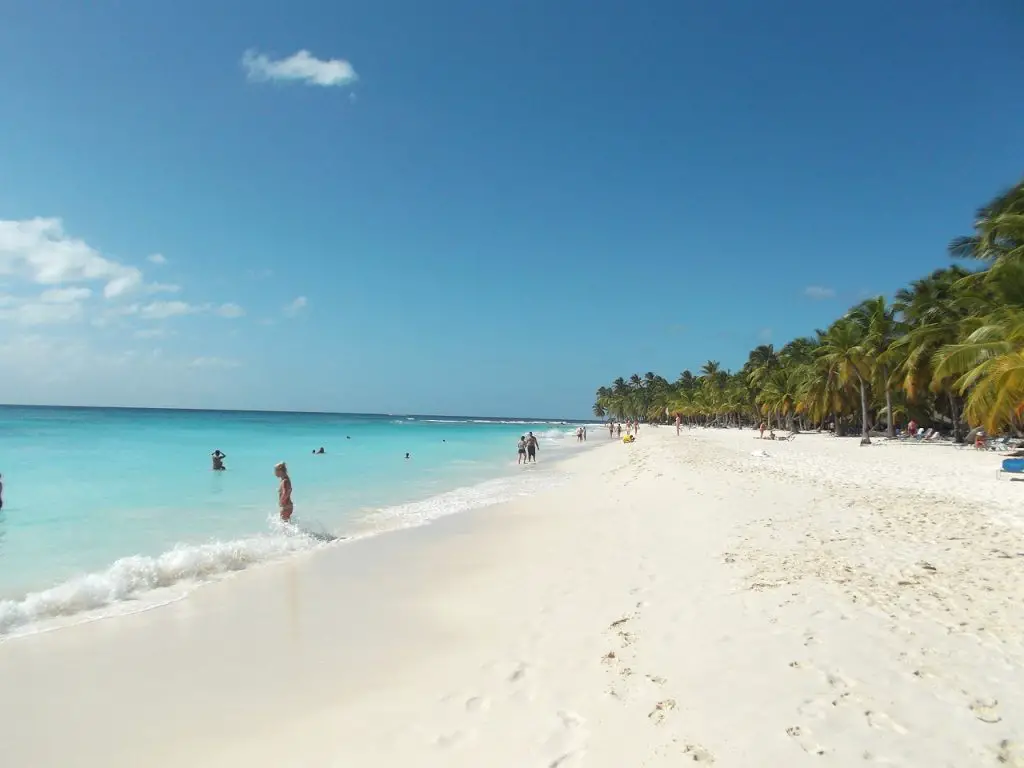In today’s globally interconnected world, work is no longer confined within the physical boundaries of an office. Digital nomads are becoming an increasingly common phenomenon, as technology and the rise of remote work opportunities allow people to combine their profession with the ability to live virtually anywhere in the world. This includes sunny destinations like the Dominican Republic, a country that has become a popular choice for those seeking to blend work and leisure. But can a U.S. citizen work remotely in the Dominican Republic? Here’s what you need to know.
First, let’s clarify what it means to work remotely. Remote work implies conducting one’s job from a location other than a traditional office setting, most often from home. However, with the evolution of technology and the increased flexibility offered by many companies, ‘home’ can now be virtually anywhere with a stable internet connection.
For U.S. citizens considering working remotely in the Dominican Republic, it’s crucial to understand the legal implications, the logistics, and the cultural context involved.
Legal Considerations
Working remotely in the Dominican Republic involves a few legal steps. At the time of writing, U.S. citizens do not need a visa to enter the Dominican Republic for up to 60 days as tourists. However, if you plan on staying longer and working remotely, you need to apply for a residence visa (Visa de Residencia) from the Dominican Republic Embassy or Consulate in the U.S.
Once in the Dominican Republic, you need to convert your residence visa into a temporary residence permit (Permiso de Residencia Temporal) within the first 30 days. This process involves providing several documents, including a medical exam, proof of income, and a guarantee letter from a Dominican citizen or legal resident.

One critical point to understand is that working remotely is different from working for a Dominican company or being self-employed within the country. If you’re working for a U.S. company or are a freelancer with U.S.-based clients, you’re not technically working in the Dominican Republic’s economy. Therefore, you’re not subject to the Dominican labor laws, and you don’t need a work permit.
Tax Implications
When it comes to taxes, things can get a bit more complicated. As a U.S. citizen, you’re required to report your global income to the Internal Revenue Service (IRS). This means that even if you’re living and working remotely in the Dominican Republic, you still need to file your U.S. taxes.
However, if you meet the IRS’s requirements for the Foreign Earned Income Exclusion (FEIE), you may be able to exclude a portion of your foreign income from U.S. taxes. This can be an advantageous benefit, but it’s essential to consult with a tax advisor to understand the specific requirements and implications fully.
On the Dominican side, as long as you’re not generating income within the Dominican Republic or from Dominican sources, you’re generally not subject to Dominican income tax. However, if you become a legal resident and stay in the country for more than 182 days in a year, you may be considered a tax resident and could be subject to taxation on your worldwide income. It’s crucial to seek advice from a local tax expert to navigate this complex area.
Logistical and Cultural Considerations
Beyond the legal and tax aspects, there are practical considerations to bear in mind. The Dominican Republic is a beautiful country with a rich culture, warm weather, and stunning beaches. However, it’s also a developing country with unique challenges.

The quality of the internet can be variable, and power outages are not uncommon. Before settling in, it’s wise to research the best locations for digital nomads, focusing on places with reliable infrastructure and a thriving community of remote workers. Cities like Santo Domingo, Santiago, and Punta Cana are popular choices, each offering a unique blend of amenities, community, and connectivity.
Healthcare is another essential aspect to consider. While the Dominican Republic has some excellent private hospitals and clinics, the standard of care can vary, especially in rural areas. It’s essential to have comprehensive health insurance that covers medical treatment in the Dominican Republic, and potentially medical evacuation if needed.
On a cultural level, integrating into the Dominican way of life can be a rewarding experience. The country is known for its friendly people, vibrant music, and delicious cuisine. However, there can be a language barrier, as Spanish is the official language. While English is spoken in tourist areas and by many young professionals, daily life and interactions can be challenging without a basic understanding of Spanish.
Lifestyle Considerations
Working remotely in the Dominican Republic offers an opportunity to enjoy a relaxed, tropical lifestyle. However, this lifestyle shift may require some adaptation. The pace of life is typically slower than in the U.S., and the concept of time can be more fluid. This can be refreshing but may also require adjustments, particularly regarding work deadlines and schedules.
Additionally, the cost of living in the Dominican Republic can be significantly lower than in many parts of the U.S., making it an attractive option for those seeking to reduce living expenses while enjoying a high quality of life.

In summary, a U.S. citizen can indeed work remotely in the Dominican Republic, provided they comply with the necessary legal requirements and prepare for the logistical and cultural differences. It’s a decision that involves careful planning and consideration but could open the door to a life-changing experience.
The rise of remote work has created unprecedented opportunities to redefine where and how we work. The Dominican Republic, with its warm climate, beautiful landscapes, and vibrant culture, offers a compelling destination for digital nomads. By understanding and navigating the challenges, U.S. citizens can successfully embark on a rewarding journey of working remotely in this captivating country.
However, as with all major decisions, it’s crucial to conduct thorough research and consult with legal and tax professionals before making the move. This way, you can ensure that your adventure in the Dominican Republic will be as enjoyable, productive, and legally compliant as possible.
In the era of remote work, the world truly has become our office. The Dominican Republic, with its unique blend of Caribbean charm and growing digital infrastructure, stands out as a promising contender in the international remote work scene. As more U.S. citizens explore this exciting possibility, the country is set to become an even more vibrant hub for digital nomads in the years to come.














